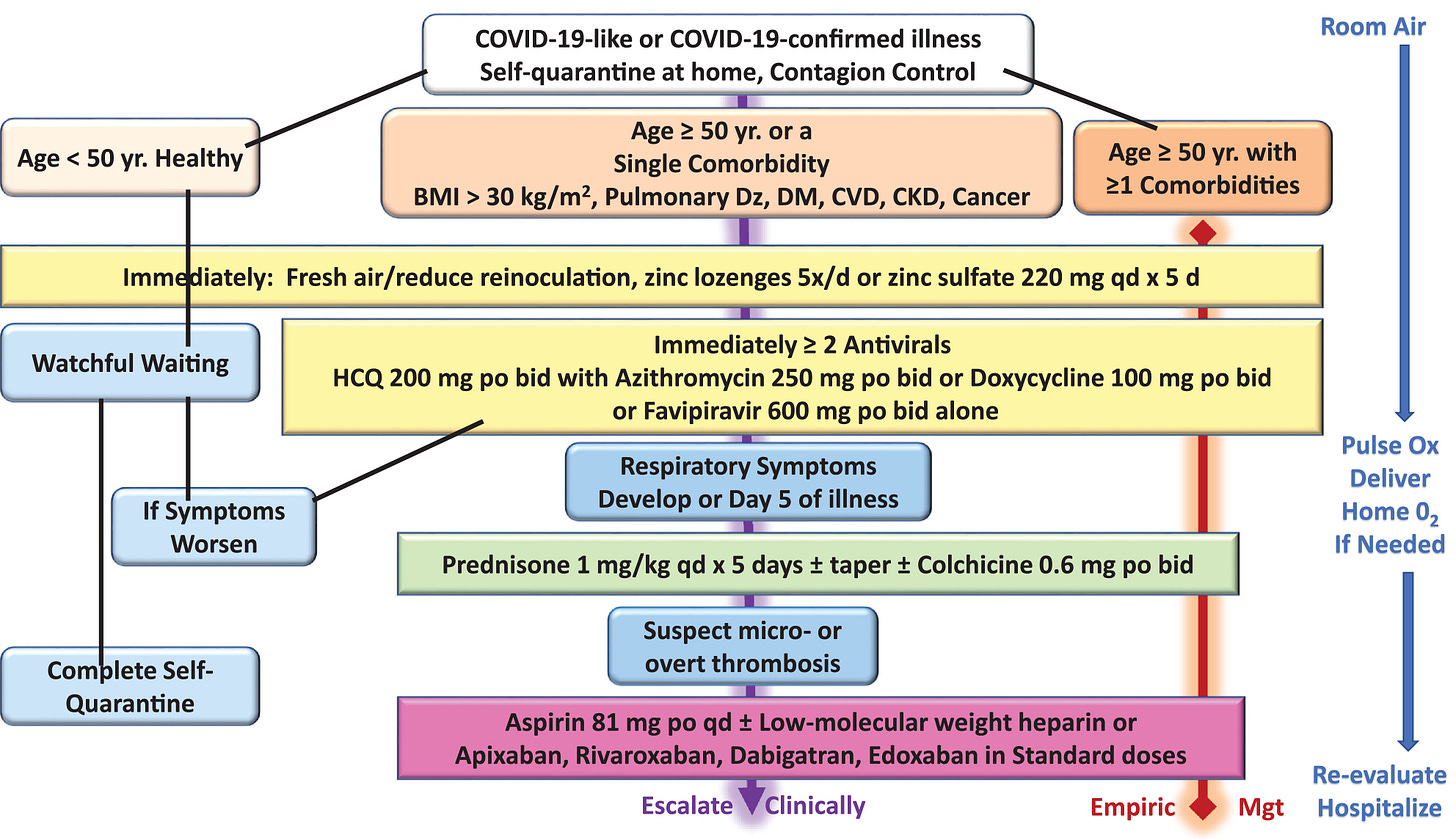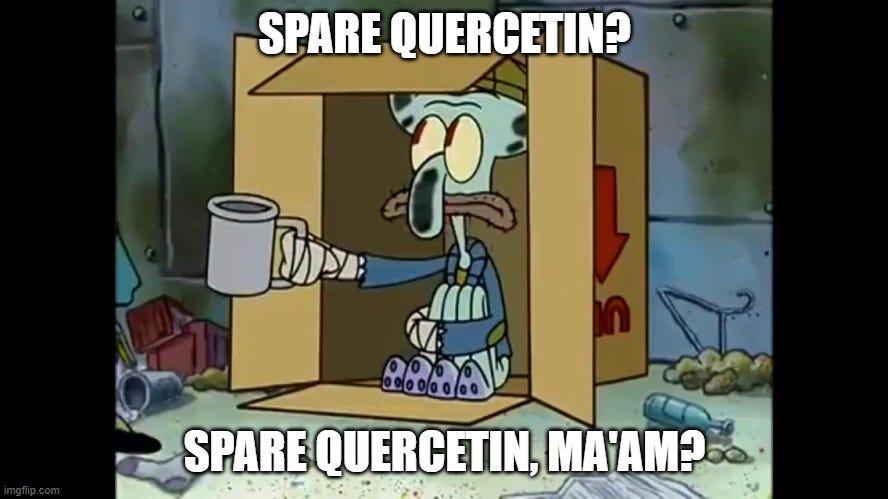Supplements to Boost Your Immune System to Prevent or Fight Off Covid-19
Here are the supplements that help boost your immune system and can help prevent and treat Covid-19.
Disclaimer: I am not a doctor. This is just the information I have discovered through hours of research. I will be including the sources for my information in this post so please take a look at them before making a decision for yourself.
Just like you shouldn’t automatically trust Big Pharma or the government, don’t blindly trust me. I don’t have any ill intentions, of course, but I am human and (very rarely) make some mistakes. :)
Preferably, you can discuss with your doctor before deciding to begin taking any of these supplements.
I’ll begin with the supplements I take myself:
Vitamin D3
Most people are deficient in Vitamin D. The darker your skin, the more time you need to spend in the sun in order for your body to make an adequate amount of Vitamin D. If it’s winter, and you’re all bundled up so only your face is exposed to the sun, you’d probably not make enough Vitamin D even if you spent hours outside. And that’s if it’s sunny out.
While you can get some Vitamin D from the foods you eat, it’s hard to get enough.
Here is a study showing there is an inverse relationship between your blood levels of Vitamin D3 and your Covid-19 mortality risk.
Inverse means that if your blood levels are low, your mortality risk is high, whereas if your blood levels are high, your mortality risk is low.
And the only way to raise your blood levels of Vitamin D3 is to either get out into the sun or ingest more Vitamin D3 through either your food or a supplement.
Here is a link to the FLCCC Alliance’s I-MASK protocol (in English) for preventing and treating Covid-19 outside of the hospital. It mentions Vitamin D3 both in the section on Prevention (Page 1) and in the Early Treatment Protocol on Page 2.
Here is the link to the various translations of the above protocol, on their website.
Dr. Vladimir Zelenko also recommends Vitamin D both to prevent getting Covid-19 and to treat it. (Link to his protocols below, under “Zinc”)
Vitamin K2
If you’re taking Vitamin D3, it’s important to also take Vitamin K2 along with it. This is because, if you are deficient in Vitamin K2 while supplementing with Vitamin D3, it can lead to hypercalcemia.
This study explains why Vitamin K2 is needed in conjunction with Vitamin D3 to prevent hypercalcemia.
It states that hypercalcemia is
“the buildup of calcium in the blood leading to vascular calcification, osteoporosis, and kidney stones.”
The study also explains how Vitamin D3 has an anti-inflammatory affect on the body:
“It has also been observed that D3 supplementation led to an increase in anti-inflammatory and immunoregulating interleukin 10 (IL-10) cytokines and reduced frequency in Th17 cells (Allen et al., 2012), which in turn leads to a decrease in IL-17 and the proinflammatory cytokine TNFα production, decreasing inflammatory effects in the host (Ferreira et al., 2020, Latella and Viscido, 2020).”
Magnesium
I personally take magnesium glycinate, because years ago I did some research on the form that was best absorbed by our bodies and settled on this one. I encourage you to do your own research and determine which form of magnesium is best for you.
The same study I mentioned above also explains the importance of taking Magnesium along with Vitamin D3. Magnesium is a mineral a lot of us are deficient in, just like with Vitamin D.
The study states:
“Supplementation of magnesium (200–250 mg/day) should also be considered, as all enzymes that metabolize vitamin D seem to require magnesium (Uwitonze and Razzaque, 2018).”
And, in the context of supplementing with Vitamin D3:
“It is highly suggested to also consider K2 and magnesium intake to avoid unintended long-term side-effects such as arteriosclerosis and osteoporosis.”
Okay, so quick recap. Vitamin D3 definitely helps prevent and treat Covid-19. But if you’re going to supplement with Vitamin D3, you should also take Vitamin K2 and Magnesium as well.
There’s three more supplements I currently take.
Vitamin C (also known as ascorbic acid)
I’m pretty sure everyone knows by now that Vitamin C is supposed to be good for our immune systems.
The FLCCC Alliance also includes it in their I-MASK protocol, as well as their other two protocols (MATH+ and I-RECOVER). Dr. Zelenko includes it in his protocols too.
Just in case you want proof that Vitamin C helps our immune systems work, here is a scientific article which explains its effects on immune function.
The article states:
“Vitamin C contributes to immune defense by supporting various cellular functions of both the innate and adaptive immune system. Vitamin C supports epithelial barrier function against pathogens and promotes the oxidant scavenging activity of the skin, thereby potentially protecting against environmental oxidative stress…
The role of vitamin C in lymphocytes is less clear, but it has been shown to enhance differentiation and proliferation of B- and T-cells, likely due to its gene regulating effects. Vitamin C deficiency results in impaired immunity and higher susceptibility to infections. In turn, infections significantly impact on vitamin C levels due to enhanced inflammation and metabolic requirements. Furthermore, supplementation with vitamin C appears to be able to both prevent and treat respiratory and systemic infections.”
That last sentence is most important and is why you should supplement with Vitamin C, because Covid-19 is a respiratory illness.
Zinc
This is another supplement the FLCCC Alliance recommends. But it’s not just them.
Dr. Peter McCullough lists it (as zinc sulfate) in his Covid-19 treatment protocol (see image below).
It’s also recommended by Dr. Vladimir Zelenko in both his treatment protocol for Covid-19 and his prophylaxis protocol.
Furthermore, this scientific article details how zinc can prevent and treat Covid-19:
“As zinc is essential to preserve natural tissue barriers such as the respiratory epithelium, preventing pathogen entry, for a balanced function of the immune system and the redox system, zinc deficiency can probably be added to the factors predisposing individuals to infection and detrimental progression of COVID-19. Finally, due to its direct antiviral properties, it can be assumed that zinc administration is beneficial for most of the population, especially those with suboptimal zinc status.”
Later on, it states in the conclusion that:
“Zinc supplementation improves the mucociliary clearance, strengthens the integrity of the epithelium, decreases viral replication, preserves antiviral immunity, attenuates the risk of hyper-inflammation, supports anti-oxidative effects and thus reduces lung damage and minimized secondary infections.”
Cod Liver Oil
It contains Vitamin A (in the form of retinol which is more bioavailable than the form found in carrots and other plants, which is provitamin A carotenoids such as beta-carotene).
As this scientific article explains:
“Vitamin A (VitA) is a micronutrient that is crucial for maintaining vision, promoting growth and development, and protecting epithelium and mucus integrity in the body. VitA is known as an anti-inflammation vitamin because of its critical role in enhancing immune function. VitA is involved in the development of the immune system and plays regulatory roles in cellular immune responses and humoral immune processes.”
So Vitamin A protects the epithelium and mucus integrity. Why is this important? Read this post I wrote to understand the significance of our mucus membranes in protecting against Covid-19 infection.
Cod Liver Oil also contains a small amount of Vitamin D3.
But most importantly, it contains the Omega-3 fatty acids EPA and DHA.
This scientific article explains how these fatty acids benefit our immune system function.
Here is a quote from the article:
“In addition to being energy-providing macronutrients, many dietary lipids, in particular PUFA, as well as their metabolic products, are capable of regulating cell functions. Of these PUFA, the marine animal-derived n-3 PUFA, composed of mainly eicosapentaenoic acid (EPA), and docosahexaenoic acid (DHA), have been intensively studied and they are known to greatly impact immune cell functions.”
Omega-3 fatty acids are also listed on Page 1 under “Macrophage/monocyte repolarization therapy” of the FLCCC Alliance’s I-RECOVER protocol for Long Haul Covid-19 Syndrome (LHCS).
On Page 2, they write:
“The treatment approach should be individualized according to the grouping of clinical signs and symptoms. However, in general, it is likely that patients who received inadequate antiviral treatment (ivermectin) during the acute symptomatic phase and inadequate anti-inflammatory/macrophage repolarization therapy (corticosteroids, statins, omega-3 fatty acids, fluvoxamine, ivermectin, etc.) during the acute phase of COVID-19 are much more likely to develop the Post COVID-19 Syndrome.”
So, I figure if I do get Covid-19, I’ll be less likely to deal with LHCS if I have an adequate level of Omega-3s from supplementing them right now.
Plus, Omega-3s are good for you in many other ways, but those benefits aren’t the topic of this article.
Now, on to a supplement I don’t take personally, but I would recommend you at least consider taking yourself.
Quercetin
It’s recommended by both Dr. Zelenko and by the FLCCC Alliance. This article explains why quercetin is important, particularly in conjunction with zinc.
“Quercetin is a natural antihistamine and anti-inflammatory plant pigment that boosts your immune system and may work to control viral replication, according to some research. It allows zinc to exert its proven antiviral properties; in treating COVID-19, quercetin may also lower inflammation, help clear mucus, prevent ventilator-induced damage and support immunity.”
It also explains how quercetin works with zinc to slow down or stop viral replication.
“Quercetin acts as a zinc ionophore (PubMed 2014), the same mechanism of action that hydroxychloroquine has via helping zinc pass the cell wall where it might halt viral replication.
This zinc ionophore activity of quercetin facilitates the transport of zinc across the cell membrane. It is known that zinc will slow down the replication of coronavirus through inhibition of enzyme RNA polymerase (PubMed 2010).”
Even though I don’t take this supplement, that shouldn’t stop you from doing so.
The only reasons I don’t take it myself are:
Money is tight
I already spent enough money on getting the other six supplements I do take
Quercetin was more expensive than the other supplements, so I thought I’d be better off getting two instead of one for the same price as two.
In other words, this is me:
However, if I could, I would absolutely add quercetin to my daily supplement routine.
So I hope that, despite the fact that I don’t take it (currently), you will consider taking it yourself.
Please let me know in the comments if there are any important supplements you think I have missed.


